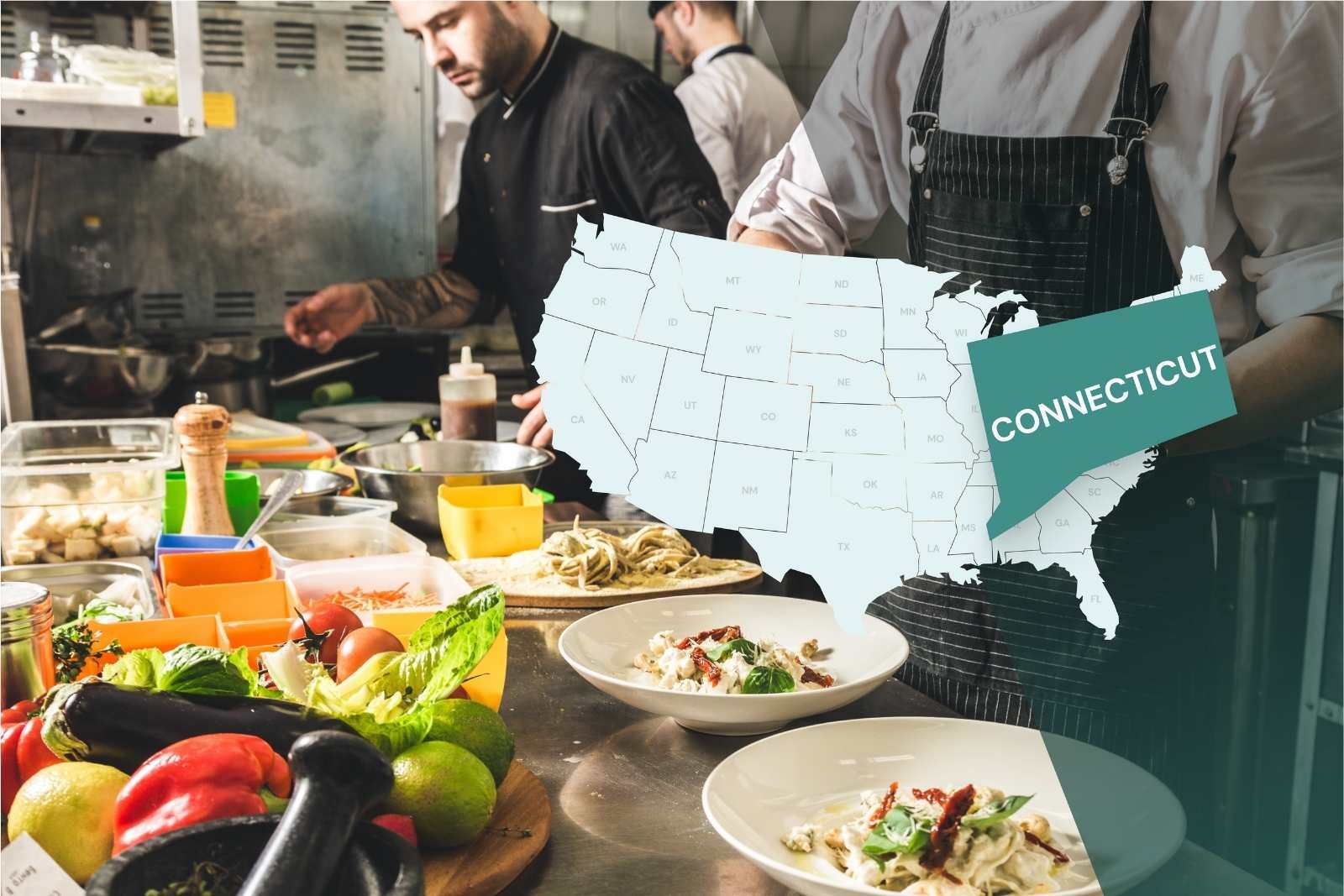Lobster rolls and clam pies are iconic foods in Nutmeg State, but these time-honored traditions are only possible because Connecticut’s food industry starts with safety.
The Connecticut Department of Public Health oversees the state’s Food Protection Program and provides foodservice establishments with guardrails to protect customers from foodborne illnesses.
If you work in the food industry or operate a food business, you may wonder what training or certifications you need to comply with Connecticut’s regulations. Read on to learn more about Connecticut’s food safety regulations, including:
Which version of the FDA Food Code does Connecticut use?
Does Connecticut require food handler training?
Does Connecticut require allergen awareness training?
Does Connecticut require food manager certification?
Which version of the FDA Food Code does Connecticut use?
The U.S. Food and Drug Administration (FDA) codified food safety recommendations into a 668-page food code that serves as a template for states, territories, counties, and cities to adopt or adjust to suit their specific needs. To stay on top of the latest food safety findings, the code is updated every two years. The most recent edition was released in 2022.1
In the 2022 FDA Food Code, there is no mandate for training in food handling or food allergen awareness, but it does recommend that a person in charge become a certified food protection manager (CFPM) by passing an exam that is part of an accredited program.
Connecticut has adopted the latest version of the FDA Food Code, which is notable as it’s only one of four other states (and two territories) to do so.2,3 The other 46 states have chosen to adopt earlier versions of the FDA Food Code or not use its recommendations at all!
Read on to learn how Connecticut has adopted the recommendations of the 2022 FDA Food Code.
Does Connecticut require food handler training?
No, food handler certificate training is not required in Connecticut. However, some employers may ask you to complete food safety training during the onboarding process.
Does Connecticut require allergen awareness training?
No, formal food allergen awareness training is not required in Connecticut. However, persons in charge must be able to describe foods identified as major food allergens and the symptoms of an allergic reaction to a health inspector. They are also responsible for ensuring the staff they supervise are properly trained in food allergy awareness.
Does Connecticut require food manager certification?
Yes, Connecticut food establishments in Class II, III, and IV must employ at least one certified food protection manager. Individuals must pass a certification exam from a program accredited by the ANSI National Accreditation Board (ANAB) and Conference for Food Protection (CFP). These credentials must be renewed every five years.
How are establishments classified?
Connecticut uses the same model established in the FDA Food Code and groups establishments based on risk level.
The risk classifications include:
-
Class I: Establishments that prepare non-TCS foods, commercially packaged, prepackaged, and pre-cooked foods (e.g., coffee shops and gas stations).
-
Class II: Establishments that serve a limited menu of food items prepared and served immediately or TCS foods that may require hot or cold holding but not cooling.
-
Class III: Establishments that serve TCS foods that require handling of raw ingredients, cooking, cooling, and reheating for hot holding.
-
Class IV: Establishments serving high-risk populations (preschools, hospitals, and nursing homes) and facilities that use specialized cooking techniques (i.e., smoking, curing, or oxygen packaging).4
As you can see from this classification system, most food businesses in Connecticut must have at least one certified food protection manager on staff.
The takeaway
The Connecticut Department of Public Health is committed to protecting the people who frequent the state’s food establishments. Establishments are held to the standards set in the 2022 FDA Food Code, and certified food protection managers are responsible for educating their staff and implementing critical food safety practices throughout their business. High food safety standards are essential to the success of your establishment–and Connecticut’s food industry as a whole!
Sources:
-
FDA: 2022 Food Code
-
FDA: Adoption of the FDA Food Code by State and Territory Agencies
-
CT Department of Public Health: Chapter 368a, , Section 19a-36i
-
Classification of Connecticut Food Establishments: Public Act 18-169 & CT General Statutes 19A-36G(3)





.png)

.png)
